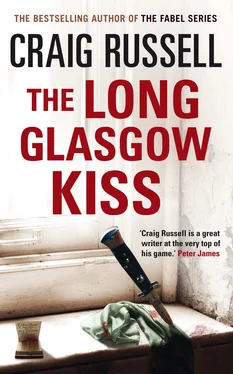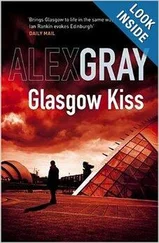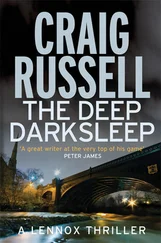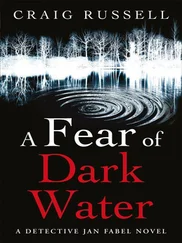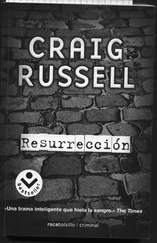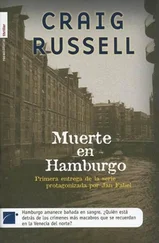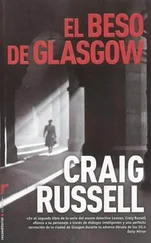Craig Russell - The Long Glasgow Kiss
Здесь есть возможность читать онлайн «Craig Russell - The Long Glasgow Kiss» весь текст электронной книги совершенно бесплатно (целиком полную версию без сокращений). В некоторых случаях можно слушать аудио, скачать через торрент в формате fb2 и присутствует краткое содержание. Жанр: Триллер, на английском языке. Описание произведения, (предисловие) а так же отзывы посетителей доступны на портале библиотеки ЛибКат.
- Название:The Long Glasgow Kiss
- Автор:
- Жанр:
- Год:неизвестен
- ISBN:нет данных
- Рейтинг книги:3 / 5. Голосов: 1
-
Избранное:Добавить в избранное
- Отзывы:
-
Ваша оценка:
- 60
- 1
- 2
- 3
- 4
- 5
The Long Glasgow Kiss: краткое содержание, описание и аннотация
Предлагаем к чтению аннотацию, описание, краткое содержание или предисловие (зависит от того, что написал сам автор книги «The Long Glasgow Kiss»). Если вы не нашли необходимую информацию о книге — напишите в комментариях, мы постараемся отыскать её.
The Long Glasgow Kiss — читать онлайн бесплатно полную книгу (весь текст) целиком
Ниже представлен текст книги, разбитый по страницам. Система сохранения места последней прочитанной страницы, позволяет с удобством читать онлайн бесплатно книгу «The Long Glasgow Kiss», без необходимости каждый раз заново искать на чём Вы остановились. Поставьте закладку, и сможете в любой момент перейти на страницу, на которой закончили чтение.
Интервал:
Закладка:
Following Barnier was time-consuming and seemed largely pointless, but there was always the chance that he would lead me somewhere that would be one step closer to John Largo. Although, as Barnier went about his mundane daily business, I found myself doubting that this debonair, cultured and educated Frenchman could have anything to do with an international peddler of narcotics.
I was maybe getting cocky, but I actually took to parking the Atlantic under the same railway arch that I had used on the night of the break-in. From there I could see the gates into the bonded area and pick up Barnier’s Simca whenever he left his office. He emerged at three-thirty in the afternoon; leaving early was something he did quite often, squeezing in a few client calls before driving home to Langbank.
It may have seemed like a pointless exercise, but I followed him anyway. An ugly jade demon and a dead gangster’s son were pointing me in that direction. And then there was the gut feeling I had about the Frenchman too: I liked the guy but every time I thought of him it was like someone prodding something that had been curled up for a nap in a room somewhere at the back of my brain.
One afternoon I waited outside the bonded docks until about six. When Barnier’s Simca pulled out through the gates, I followed. When he drove west towards Greenock, I guessed we were heading straight to his home in Langbank. I had to hold back as far as I could without losing him. The road ribboned along the side of the Clyde and, despite this being the main road that connected Glasgow with its satellite town Greenock, there were practically no other cars in either direction. We passed the point where I had turned south and camped out in my car by the reservoir. Then, surprisingly, the Simca drove past Langbank and out towards the west. I couldn’t imagine what business an importer of fine wines and oriental curios could possibly have in Greenock.
He drove towards the town and I lost him where the coast takes a sudden sweep southwards. I accelerated a little and nearly missed his turning. Port Glasgow had a vast sugar works and the hill above it had been named Lyle Hill. Why Tate didn’t deserve recognition was something I didn’t know. Driving up the sweep of Lyle Hill I passed Barnier’s parked Simca. I drove on, not even slowing down until I was around the bend in Lyle Road, out of sight of where he had parked. I pulled over and took a set of binoculars out of the glove compartment. I had to scrabble up the hillside to get a vantage point from which I could watch Barnier. The leather soles of my Gibsons slipped on slimy grass and I came down onto my knees several times, cursing the damp, dark staining on my suit trousers. Glasgow was a city with a heavy-industrial attitude to everything and I had found out to my cost that laundries in the city approached the dry-cleaning of my best suits with a delicacy that make steel-smelting look like needlepoint.
I made it to the top of the hill and seemed to be on the edge of a golf course. There was brush and some meagre trees to give me shelter and I looked down at where the road swept around the edge of Lyle Hill. The view was breathtaking: out across the Clyde to the mountains of the Cowal Peninsula. Immediately below was Greenock on one side and Gourock on the other. And, further out, the Tail of the Bank. This had been the departure point for my parents when they took me, as a baby, to start a new life in Canada.
But what struck me most about what I was looking at was the fact that Barnier had stopped at the monument that commanded the best of the view. The memorial was in the form of a vast white ship’s anchor, the shaft of which thrust dramatically up into the sky. But instead of having the usual rode-eye at the top, the anchor shaft had two beams cross it, one shorter than the other. A Cross of Lorraine. As a piece of civic sculpture, it could not have been more dramatic. And I knew something about what it commemorated.
I watched Barnier. It was difficult to tell if he was waiting for someone or if the monument had some particular significance for him. He stood as if reading the inscription on the base. Then he turned and leaned against the border rail, with his back to me, and seemed to be gazing out over the Firth of Clyde. He stood there for a good ten minutes before turning and heading back towards his car. I cursed inwardly. I had been sure he was going to meet someone, and the monument seemed an ideal place for a rendezvous. But I had probably just watched too many Orson Welles movies.
I scrabbled down the side of the hill as fast as I could to get back to the Atlantic. If Barnier turned back down the hill then I would have to hurry or lose him. As I scrambled, fingers of tree branch snagged at my suit to impede my descent. My hat came off a couple of times and it was only by some nifty goal-keeping that I saved my Borsalino from the mud. I burst out from the green web of bushes and onto the road, a few feet from where I had parked the Atlantic.
You see it all the time in Westerns. The settlers look up from the pass and spot the menacingly still and silent silhouettes of mounted Apaches or banditos up on the hillside looking down on them. The Badlands.
Port Glasgow was Scotland’s equivalent of the Painted Desert, and when I came out onto the road again there were three Teddy Boy Comancheros waiting by my car. My gut feeling was that there was nothing professional or organized about this encounter: it had nothing to do with my tailing of Barnier and was just your run-of-the-mill Scottish small-industrial-town thuggery. I reckoned that they were all about nineteen. They clearly identified themselves with the emerging Teddy Boy fashion, but none of them had been able to put together a complete assembly. Instead one wore the thigh-length jacket, one had drainpipe trousers and the jacketless third thug had had to settle for a bootlace tie.
Between them they had enough oil in their hair to lubricate a battle ship and an array of skin conditions impressive enough to keep a dermatologist on a stipend.
‘This your car, pal?’ the youth with the Teddy Boy jacket asked. He was clearly the leader; maybe that was why he’d got the jacket. He was leaning against the wing of the Atlantic and looked relaxed. A bad sign. Confidence in any kind of physical encounter is half the battle. The other two just looked at me with a dull-eyed lack of interest, as if this was something they did every day, which it probably was.
‘Yeah, this is my car,’ I sighed, brushing the worst of the leaves and mud from my suit trousers.
‘We’ve been looking after it for you,’ said one of the others. I had to concentrate hard: I hadn’t brought my Greenock phrase-book with me. It had taken me years to understand the Glasgow accent. But Greenock was beyond the pale.
‘I appreciate that,’ I said with a smile. I took my keys out of my pocket and headed to the door. No rush now. I was going to have to let Barnier get away. I had more immediate problems. The leader in the Edwardian jacket slid along the wing and positioned himself in front of the door.
‘Well, it’s like this. You could’ve come back here and found your tyres all flat and fuck knows what else. But we was here to make sure nobody touched it. So we think that you should maybes give us a couple of quid, like.’
His two mates took up position on either side of me, squaring their shoulders. Not much to square.
‘Yeah?’ I said. ‘Very enterprising of you. But the trick is to ask for the money first, Einstein.’
He furrowed his brow. Not anger, just uncertainty about the insult. I realized he didn’t have a clue who Einstein was. I was going to have to learn to keep my references simple. I sighed and reached into my pocket and the frown on his pimply brow eased. It shouldn’t have.
Читать дальшеИнтервал:
Закладка:
Похожие книги на «The Long Glasgow Kiss»
Представляем Вашему вниманию похожие книги на «The Long Glasgow Kiss» списком для выбора. Мы отобрали схожую по названию и смыслу литературу в надежде предоставить читателям больше вариантов отыскать новые, интересные, ещё непрочитанные произведения.
Обсуждение, отзывы о книге «The Long Glasgow Kiss» и просто собственные мнения читателей. Оставьте ваши комментарии, напишите, что Вы думаете о произведении, его смысле или главных героях. Укажите что конкретно понравилось, а что нет, и почему Вы так считаете.
